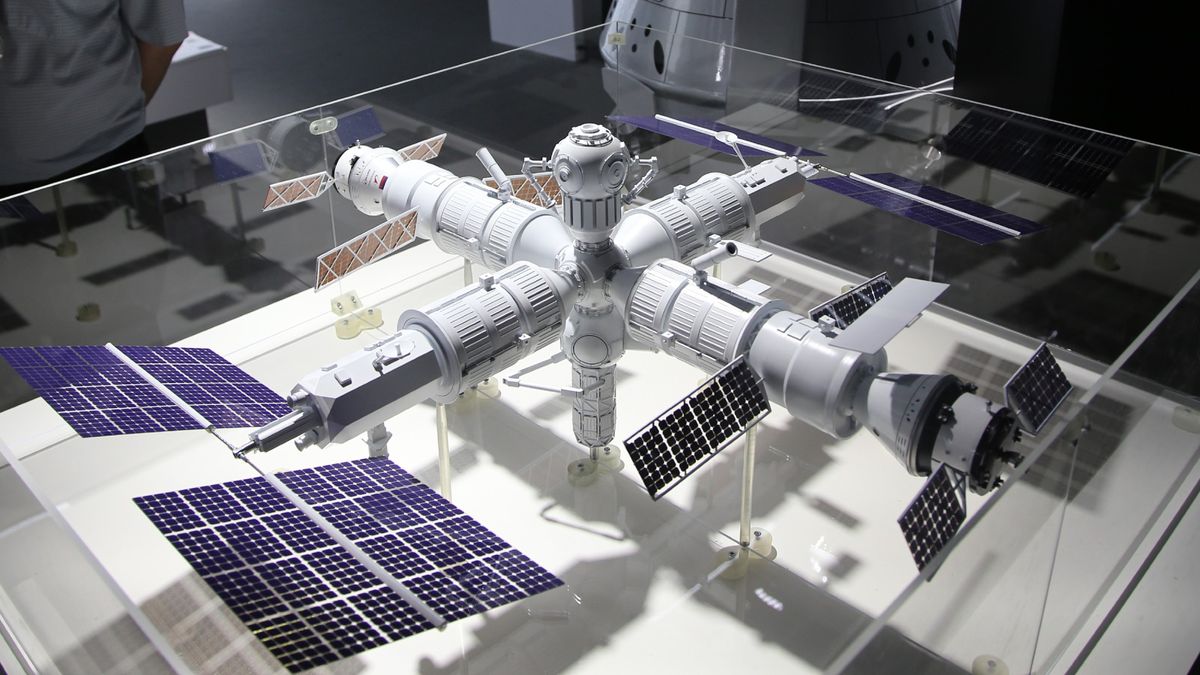Russia has unveiled a comprehensive roadmap for building its newest space station and associated Earth-based infrastructure, with the first modules expected to launch within three years.
On July 2, the leadership of Russia’s space agency Roscosmos described their upcoming to create the nation’s newest space station, currently known as the Russian Orbital Service Station (ROSS), according to Russian news agency TASS.
The first module of the X-shaped outpost, a research and power node, is expected to be launched into a near-polar orbit in 2027, TASS reported. By 2030, it plans to have docked its four major modules, with two “special-purpose” modules scheduled for attachment by 2033. Roscosmos plans to send the first cosmonauts to the station in 2028 and has suggested the station can be operated without crew.
The Russian Orbital Service Station would orbit at the same altitude as the International Space Station, around 250 miles (400 km) above Earth, in a polar, sun-synchronous orbit. The route is particularly useful for observing the entire surface of the planet, according to Roscosmos, and also provides a valuable view over “the strategically important Northern Sea Route”. The estimated cost is about $7 billion USD.
The schedule for building ROSS also depends on the success of the next-generation heavy-lift Angara A5 rocket, which has had three successful orbital flight tests since 2014, and a partial failure in 2021.
Its construction is also likely to contain a first: Russia is riding the AI hype rocket, it seems.
“Artificial intelligence is quickly developing technology.” said Vladimir Kozhevnikov, chief designer of ROS, on July 2, according to a report by TASS. “We will use its support but basically we will use our brains, of course,” What form this AI takes is unknown – will ChatGPT get a building credit on ROSS modules?
Another chief designer, Vladimir Solovyov of space rocket company Energia, has suggested there will be “unusual” goals for ROSS, with the space station providing guidance for a fleet of satellites – a first.
“This fleet will fly near the station […] this, too, will imply brand-new tasks for mission control as no one has ever endeavored to do so,” Solovyov said.
Russia has been a principal member of the International Space Station since launch, alongside NASA, the European Space Agency, JAXA and the Canadian Space Agency. For its new station, it’s looking at partnerships with Brazil, India, China and South Africa, in addition to other African countries.
Back in 2021, Roscosmos signaled its intention to build its own space lab, a successor to its Mir space station. In mid-2022, after the invasion of Ukraine and heightened tensions between Russia and other Western countries, Roscosmos announced it would leave the ISS program ‘after 2024.’ It has since announced it will remain on the ISS until 2028.
Though the timeline for departing the ISS remains uncertain, the schedule signals the Russian space agency’s intent to advance its own interests and focus on security and scientific development Roscosmos believes has been hindered due to international agreements on the ISS.
The ISS is expected to undergo a planned deorbit in 2030, but may remain in operation until commercial stations have been built.
















.jpg?itok=F2C4uk0x)




Discussion about this post